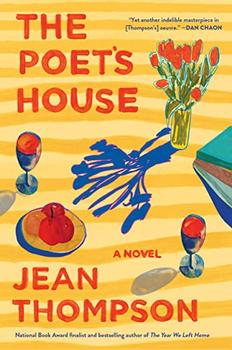Summary | Excerpt | Reviews | Beyond the book | Read-Alikes | Genres & Themes | Author Bio

The year is 1937 and Hitler is gaining stronger sway over Europe. Chief among the Führer's growing list of targets are the Surrealist and Dadaist artists whose work he deems degenerate. To safeguard the stars of this controversial movement, American socialite Leonora Calaway invites a menagerie of avant-garde painters and writers to join her in her holiday home on the western shore of far-flung, jungle-clad Mexico. Lara, her 15-year-old daughter, is also dragged along.
As the sole child in this unorthodox household, Lara feels isolated amid the lovers quarrels and creative jealousies of idle artists whose volatile passions simmer in the close quarters, monotony and relentless heat of Costalegre. Again and again, she attempts to win the affections of her mother, but Leonora is too busy fawning over her artist friends. Neglected so, Lara finds solace in her diary and forms an unlikely friendship with the reclusive Jack Klinger, an exiled Dadaist sculptor who has become disillusioned by the art world.
Costalegre's central conceit may seem slightly outlandish, but the thrust of the novel is inspired by real events. As Maum expounds in her afterword, Leonora Calaway is loosely based on Peggy Guggenheim (1898–1979), a wealthy art collector who flew a group of artists to New York City to wait out the Second World War. The cast of artists are composites of famed surrealists Max Ernst, André Breton, Djuna Barnes and others. But Maum's project here is less to retell Peggy and co.'s story and more to give voice to the socialite's oft-forgotten daughter Pegeen, who serves as inspiration for Lara.
The plot is spare but its form is endlessly inventive. Maum imbues Lara's diary vignettes with postmodern stylings, offering insight into her young protagonist's mindset by inserting offhand lists; surrealist sketches (both visual and in prose); extracts from botanical books; and a handful of unsent letters addressed to her papa, brother and best friend who remain in war-torn Europe. Through this bricolage we become intimate with all aspects of Lara: her intelligence, artistry, perceptiveness, naivety, hopes and insecurities.
Through Lara's musings, Maum is able to pit ideas about art and freedom of expression as things that should be safeguarded at all costs, against more primal pursuits, such as a child's need for love. Leonora may hope her daughter seizes this rarefied opportunity to learn from the artistic elite and become a "cultured girl," but as Lara posits: "[w]hat am I going to learn? How to be upset with everything and turn things upside down?" In the context of Lara's isolation, art seems frivolous and antithetical to contentment.
The artists themselves come across as a loathsome, vainglorious bunch. Leonora is joined by new husband Konrad Beck, a gold-digging, tantrum-throwing painter who is openly having an affair with the alluring writer "C." Together with the rest of the party, they squander their privileged safety from the ongoing terrors of Europe, documenting their dreams, arguing about the efficiency of the local help, and playing provocative games in the nude.
Notwithstanding her misgivings on the merits of art, Lara yearns "to make something beautiful...that stays with you in that upsetting way," if only for her mother. But Leonora, who is too preoccupied by the fate of a chartered ship transiting her art collection across the Atlantic, remains uninterested. In frustration Lara writes: "I hope that ship sinks, I hope it burns...maybe she would be emptied enough to finally mother me."
As her lonely days roll by, it becomes clear that Lara does not possess the artist's gift for painting. What she fails to recognize however is her natural genius for writing. Lara's passages are pervaded by incisive wit - "I should be an orphan; at least I'd be in school!" - and bursts of beautiful, dreamlike surrealism: "I wish that I could scream until my pores were tentacles and I pulled each and every person down with me until life was soft again."
The needlessly abrupt ending is bound to annoy many, but Costalegre is a dazzling read that deftly questions the modern world's blind obsession with the cult of the artist.
![]() This review was originally published in The BookBrowse Review in July 2019, and has been updated for the
July 2020 edition.
Click here to go to this issue.
This review was originally published in The BookBrowse Review in July 2019, and has been updated for the
July 2020 edition.
Click here to go to this issue.

If you liked Costalegre, try these:

by Tan Twan Eng
Published 2024
From the bestselling author of The Garden of Evening Mists, a spellbinding novel about love and betrayal, colonialism and revolution, storytelling and redemption.

by Jean Thompson
Published 2023
A warm and witty story of a young woman who gets swept up in the rivalries and love affairs of a dramatic group of writers.
Idealism increases in direct proportion to one's distance from the problem.
Click Here to find out who said this, as well as discovering other famous literary quotes!
Your guide toexceptional books
BookBrowse seeks out and recommends the best in contemporary fiction and nonfiction—books that not only engage and entertain but also deepen our understanding of ourselves and the world around us.